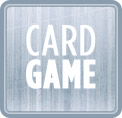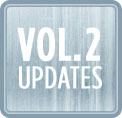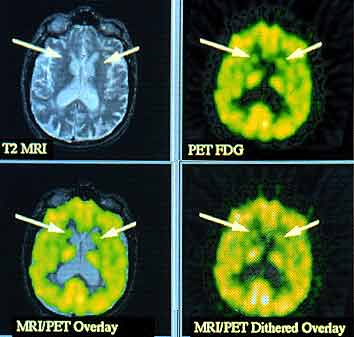Category ArchiveLinks
Links 27 Feb 2012 11:52 pm by David !
‘Am I My Genes?’
“I have chosen not to be tested…it just seemed really — something I didn’t want to have to deal with. And if I was OK with it, I felt like the person that I would meet in my life, my husband, we talked about this before I was married.
“Now I am married, and I have a two-year-old son, and these are all things that every time we come to one of these decisions, it’s brought up again, and we decide again, you know, are we going to do it, no, I don’t want to do it. Are we OK with it? Yes, we’re OK with it…
“I have been able to be at peace with my decision, but I’ve seen my own sister, for whom not knowing put her into a severe depression for years.”
Machine of Death made real? Close — it’s modern-day genetic testing for diseases such as Huntington’s, as explored in a book by Robert L. Klitzman, M.D.: Am I My Genes?: Confronting Fate and Family Secrets in the Age of Genetic Testing. The above quote comes from an episode of NPR’s Talk of the Nation, in which the author is interviewed about the book.
More from Dr. Klitzman himself:
DONVAN [host]: So you test for this gene, and you come out positive. What do you then have to consider?
KLITZMAN: Well, there’s a wide range of issues, as you mentioned. The first one is whom do you tell. So people suddenly had to wrestle: Do I tell my 18-year-old son or daughter, or my 17-year-old, or my 21-year-old child that he or she therefore also has a 50-percent chance of having this mutation? Do I want to have that shadow them as they’re just getting going on their independent adult lives?
DONVAN: And what kind of answers did you hear to that question?
KLITZMAN: Well, people wrestled. People generally found, I think, that people at 17, 18 — that’s too young. Some people waited until their children were getting married, and suddenly when they were about to get married, at age 28, their parents said, ‘You know, by the way, Uncle Jack, he didn’t fall down the stairs and die as we talked about. He actually had Huntington’s disease.’ […]
DONVAN: Robert, is that quite typical, that it actually is kind of — the not knowing is more of a torment than knowing?
KLITZMAN: Well, it’s a very difficult decision because for some people, not knowing is worse, and therefore they decide to get tested. People, I should say, also often feel that they are beginning to have symptoms, and that then may lead them to decide to test or not test. There’s also issues during dating, that is to say, even before getting married. At what point do you tell? If you’re just beginning to date someone, do you tell right away on the first or second date? And if you do, there may not be a third date.
On the other hand, if you wait too long, people can feel you’ve not been honest. So those are very difficult decisions. […]
And the problem is if you tell the doctor, the doctor will no doubt write it in the medical chart, and if you apply for life insurance or disability insurance or long-term-care insurance, the insurance company may well ask to see the chart and see that information there…
[And] there is often subtle discrimination that goes on. So what people told me, as I describe in the book, is that, you know, ‘Everyone thought I would become the next head of the department when the head of the department retired. But I had this test, and I told a few people at work, or I told a work friend or colleague that I had this mutation, and when it came time to replace the boss, I was not chosen. I was passed over.’
The full interview is here. I heard this on the radio on the car and thought MOD fans might be as interested as I was. (Art imitating life, etc…?) The interview is well worth a listen!
There’s an excerpt from the book on the NPR website as well.












